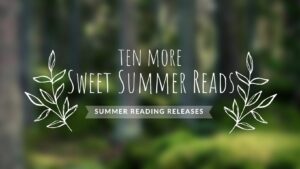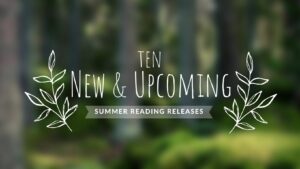Reading is about the experience of reading, like listening to music, seeing a painting, or going on vacation- James Wallace Harris at Book Riot
James Wallace Harris, Book Riot
I have to admit something that is terribly embarrassing for a writer. I have the worst memory for books.
Usually, I can remember that I have read a book. Sometimes, I can remember a few major plot points, if I’m lucky and the books was really, really memorable.
More often though, I’m left with vague impressions. I know the emotions the story stirred up, or the big WHAT driving the story- the moral or philosophical values winding through it. But I cannot remember character names or subplots or even some of the bigger plots.
Yet I keep reading. The experience of each new book thrills me. I’m excited to deal with new places, people, and ideas, some that are quite challenging. Some are impossible to love, but still valuable for having encountered them. This always makes me think of the Ralph Waldo Emerson quote:
I cannot remember the books I’ve read any more than the meals I have eaten; even so, they have made me.
Ralph Waldo Emerson
There are so many reasons to read, even with a porous memory like mine. Not the least of which being that reading changes our outlook on an intuitive level. Like antioxidants, the things we read bounce around inside us and react with everything we’ve already consumed, slowly reinforcing or confronting how we think and feel on different subjects.
For me, reading a good book is about immersion. An excellent novel or memoir is just as much a work of art as a film or a string quarter or a masterful painting. It’s something to get lost in. It’s an exercise in letting go and enjoying the moment– a feat that is all too rare in our increasingly productivity-obsessed world.
And if reading is about immersion, why would I be trying to memorize facts?
Many times, as I’m reading, learning a new fact prompts me not to memorize it (I’m pretty sure I have far too little storage space for everything that I’ve found mildly interesting.) But it does spark an idea! Often I jot these down to use in my own work. Or I Google it and spend a delightful fifteen minutes going down the rabbit hole of the internet.
I come out the other side feeling much more enlightened if a little foggy on what exactly I just learned. But the next time an idea sparks, the connection grows clearer.
The brain is a great place to make creative connections and a pretty poor place to store information.
Danika Ellis at Book Riot
As a writer, I also understand how books are designed to be empathetic. Even as I write this, I want you to feel less alone, less guilty, if you struggle with forgetting what you read. I want you to feel connected to me and to others who are forgetful readers.
Beyond empathy, reading has been proven to spark our neurons with joy, hope, love, and even spiritual experience. Certain pieces can make us more generous, adventurous, and even courageous. So reading isn’t just some immersive escape- though it certainly can be. Reading can also make us more of ourselves out in the world.
Now that I’ve spent a lot space convincing you to read even if you forget, there are a few ways to up your recall, if you really want to be able to remember a book long enough to discuss it at the next dinner party. (Or next week with your book club, whatever floats your boat.)
In all my searching, I found three big takeaways:
1: There is no reading. Only re-reading.
It’s just about impossible to “know” a book with only one pass through it. We don’t expect to master anything else on the first try, so why should reading be any different?
If you want to up your recall, read it again!
(And being a forgetful reader certainly makes re-reads much more exciting. Coming back to a much-loved book and discovering new treasures with each turn of the page is very much like catching up with an old friend after years of being separated.)
2. Break out the book report and… summarize!
Ok, maybe not a full-on book report. But there are plenty of reading and “Books I Have Read” journals out there that can help you jot down the main characters, settings, and big plot points, as well as how you felt about the book. Writing reinforces memory, so this is a good trick to have.
3. Talk it over.
Grab a reading buddy. Maybe this is your best friend or your spouse. Maybe you find a #bookstagram buddy. Or a book club. Whoever it is, pairing up with one person or a group to talk over a book certainly helps you remember it. And it helps you see it from different perspectives!
Lastly, do not stress! To sound like a kindergarten teacher, reading is fun. And we can enjoy it just for that and not try to make it into some sort of party trick.
I’ve gotten more comfortable talking about the impressions books made on me than hard and fast facts about them, and I’ve done just fine. I’ve even admitted that I can’t remember a time or two. And no one has called me a fraud or made faces. Some people have looked relieved.
So go grab a book and just enjoy it. I promise there won’t be a pop quiz later!


